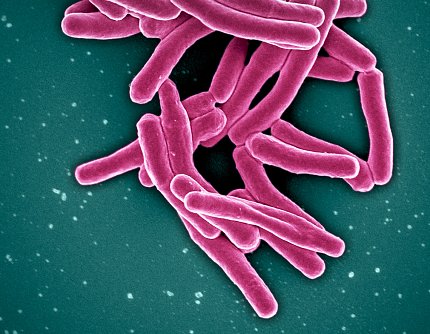Trial to Test New Drug Regimen for TBM

Photo: NIAID
A trial of a new drug regimen to treat tuberculous meningitis (TBM) has started enrolling adults and adolescents in several countries where tuberculosis (TB) is prevalent. The Improved Management with Antimicrobial Agents Isoniazid Rifampicin Linezolid for TBM (IMAGINE-TBM) trial will compare a six-month regimen of four drugs with the nine-month, standard-of-care regimen for TBM.
IMAGINE-TBM is sponsored by NIAID and implemented through the NIAID-funded Advancing Clinical Therapeutics Globally for HIV/AIDS and Other Infections (ACTG).
TBM is fatal in about 25-50% of adults who develop the disease and often results in permanent disabilities in survivors. It is caused by Mycobacterium tuberculosis that more commonly attacks the lungs and causes pulmonary TB. In TBM, the bacteria infect the membranes surrounding the brain and spinal cord called the meninges, causing inflammation known as meningitis. This can lead to neurological disability or death.
An estimated quarter of the world’s population is living with latent TB—during which M. tuberculosis bacteria remain alive in the body, but inactive—and 10% of people with latent TB become ill from the infection. People living with HIV have a higher risk of death from TBM, with fatalities exceeding 50%.
Participants in the IMAGINE-TBM trial will be given either the investigational six-month regimen or a nine-month standard regimen.
The trial will include 330 participants ages 15 years and older who have or are likely to have TBM based on signs and symptoms, including people living with and without HIV. The study will shed light on a potentially shorter, better treatment for TBM and could result in improved outcomes for patients with this dangerous disease.
